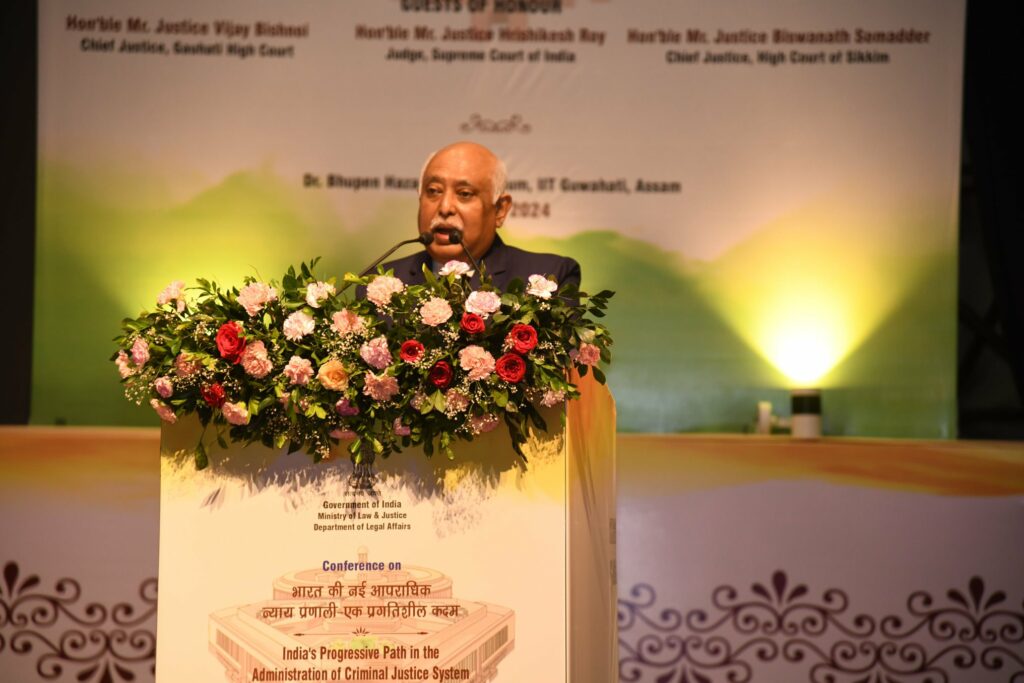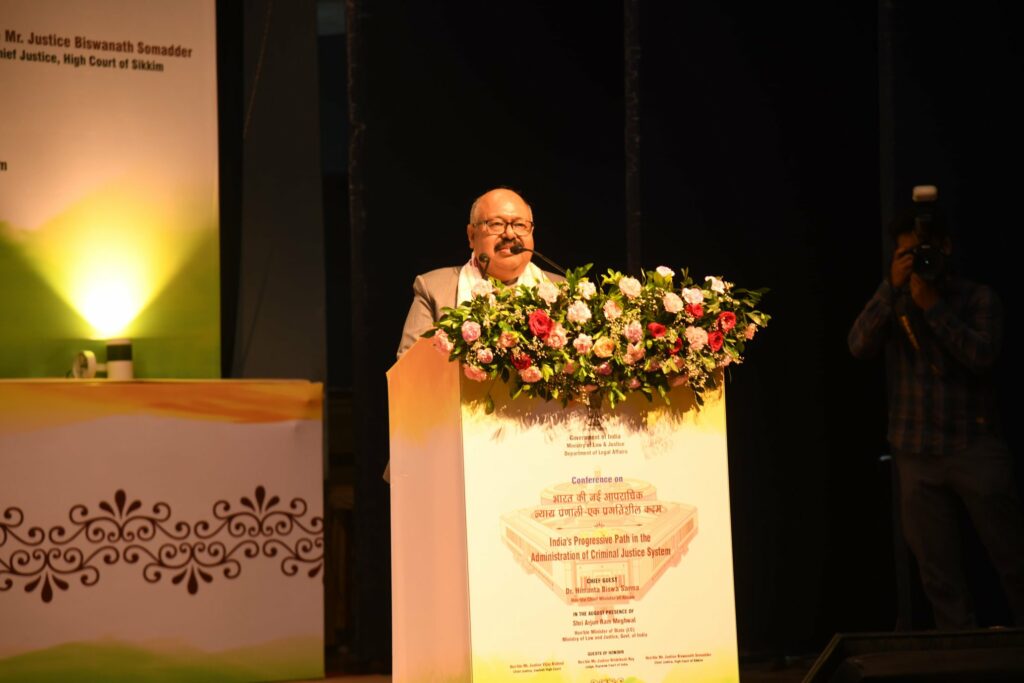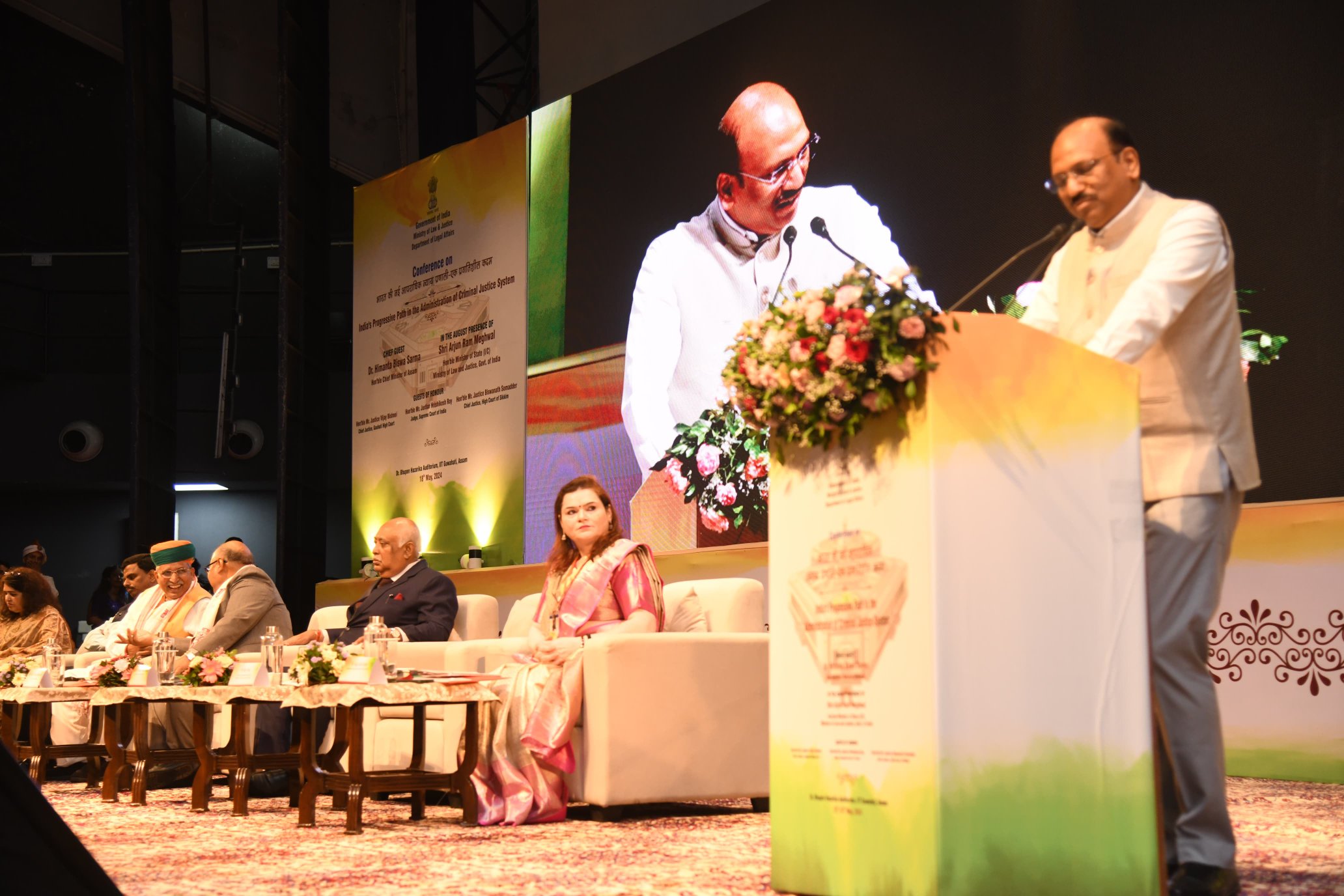Department of Legal Affairs, Ministry of Law and Justice is organizing a two day Conference on ‘India’s Progressive Path in the Administration of Criminal Justice System’ at Dr. Bhupen Hazarika Auditorium, IIT Guwahati.
The inaugural session was held on Saturday May 18, 2024 in the august presence of Arjun Ram Meghwal, Minister of State (Independent Charge), Ministry of Law and Justice Justice Hrishikesh Roy Judge, Supreme Court of India and Justice Biswanath Somadder Chief Justice High Court of Sikkim.

This session was also attended by a large audience comprising of judges of various High Courts, advocates, academics, representatives of law enforcement agencies, police officials, public prosecutors, District Judges and other officials and law students. The Conference is set on the backdrop of the enactment of three new Criminal Laws, namely Bharatiya Nyaya Sanhita 2023, Bharatiya Nagarik Suraksha Sanhita 2023 and Bharatiya Sakshya Adhiniyam 2023 which are to replace the Indian Penal Code 1860, the Code of Criminal Procedure, 1973 and the Indian Evidence Act, 1872 respectively. These new criminal laws are scheduled to take effect from 1stJuly2024.

In the Inaugural Session, Dr. Anju Rathi Rana, Additional Secretary, Department of Legal Affairs, outlined the objectives of the Conference and briefly highlighted the importance of the three Laws, which symbolise a break from the shackles of colonial legal legacy and adopting a justice system that is equitable, efficient and responsive to the constantly evolving needs of our diverse country. This evolution is also a testament to India’s resilience as we progress as a nation while staying entrenched to our constitutional principles. She also outlined the importance of the North Eastern states and the people living in this region in bringing transformative change of the country including ushering a people-centric legal system for India. This conference is an attempt to sensitise the stakeholders regarding the three new laws and their salient features.
Addressing the august gathering, Dr. Rajiv Mani, Secretary, Department of Legal Affairs, Ministry of Law and Justice said this conference and gathering is not only for the purpose of discussion of the three new Criminal Laws but also to embrace and take pride in our roots. Through this conference, we are today celebrating freedom from the eradication of colonial-era criminal justice administration. He highlighted the background of the enactment of the three criminal laws and how it unshackles the legal structure and framework created by the Britishers which was meant to perpetuate the British rule in India on the ostentatious ground of establishing Rule of Law. The existing criminal laws define the State- Citizen relationship based on colonial prejudices and practices, whereas the new Criminal Laws are based on the principles of access of justice to all. The three laws have hence been enacted to overhaul the criminal justice system in the country to make it citizen-centric. He highlighted that North East region of India that comprises of eight states with its own distinct history and identity always played an important role in the development of the country and is poised to play an important role in future. He said the new Criminal laws have replaced the philosophy of punitive and retributive justice with restorative justice, with focus on rehabilitation and victim-centric approach.

